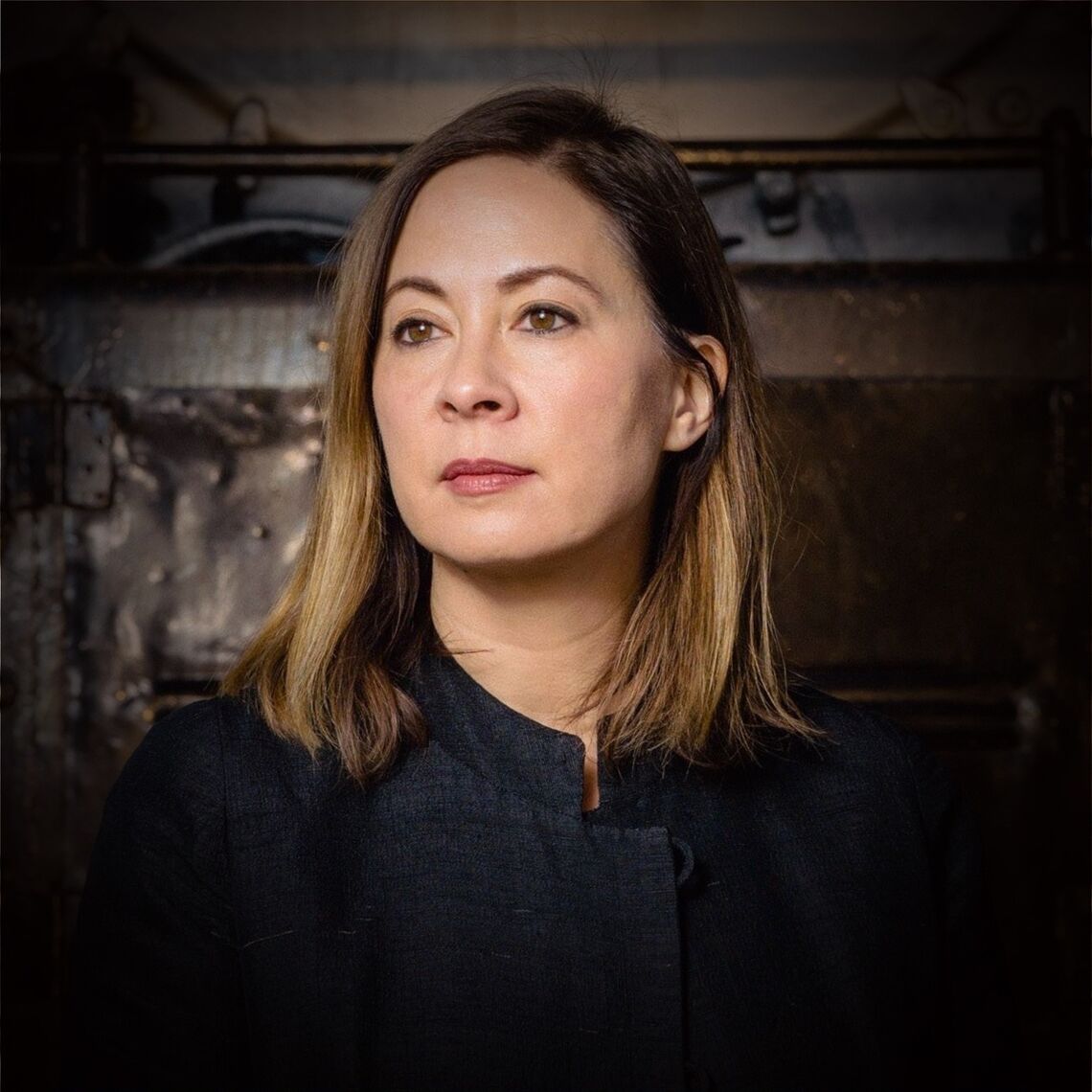How thoughtlessly
I took it, this cast-
iron Aunt Jemima
doll hauled from the trunk
of my white
friend’s car. Another
of T’s, her Jamaican
husband’s, mementos
he collected
as a joke. Not unlike
those figurines
I recall a college friend once
exhibited, who’d bought
Aunt Jemima spoons,
shirts, piggy
banks, left his apartment strewn
with Uncle
Remus albums scavenged
from thrift shops: some
terrible gag
he’d invite friends over
to witness: we’d sit
and try not to look,
or to look and laugh
with the same
irony he’d cultivated,
though of course
it couldn’t be the same. He
was Black and we
were not and didn’t
each of us still have
some cupboard sticky
with the drippings from these
crystallized red caps, a box
of Uncle Ben’s
growing rancid
in the pantry?
My friend, I don’t think,
enjoyed his figurines so much
as our discomfort, the fact
he could see us for the first time
see the image the way he’d had to,
which is not the same as feeling
his own anger reflected
back in us. He liked instead to parse,
I think, the inbuilt limit where
his and our histories
finally split apart. Of course,
none of us thought the collection
that funny to begin with,
but none of us would say it, how tired
we found the game:
our laughter less
a reckoning with shame
than an indulgence
he thought he’d granted us,
that he insisted he perform
for and with us.
But at whose expense?
Did I mention my friend
was half-white? Light-
skinned, raised by a white
and single mother, his collection perhaps
an imagined test for being
Black: something
he couldn’t parse turned to this
self-hating shorthand he could display
and thus control for those
both too like him
and nothing like himself?
I had, in my own closet,
a pair of Japanese dolls
gifted me by my white
grandmother who’d bought them
from a Chinatown gift shop
after my mother said, She
should have something that looks
like herself, and so here
they were: twin geishas
with real hair, moveable feet,
scrap-silk obis. How Po Po grimaced
when I unwrapped them, she
who refused even to eat
in Japanese restaurants: now
she’d be sewing tiny yukatas
for a half-
white granddaughter
every Christmas. I kept the dolls
far past childhood as my own kind
of joke, as if I’d also not loved
the cloud-spun hair, the gilt
kimonos, and now I wonder
if my friend’s figurines
were chosen only
for disdain,
not some tenderness
remaining for the soft
cheek, the glowing
eyes more penetrating
if blanker than a mother’s, perhaps
more familiar
than a mother’s, because
they watched him
at the breakfast table
in every white friend’s
house, his only ally
and witness, uncanny
reflection of an already
uncanny self.
I kept my own dolls
on a shelf, hid them
when friends brought theirs
over, the blondes
with their pink cars, houses,
their multiple husbands.
But I kept my dolls’
faces clean, wiped away
the dirt stains from their feet,
the only thing
about them that could move,
because they were meant to dance,
my white grandmother
told me. I have no idea
where these dolls are now;
I never added
to their collection the way
my friend did, the way
T did, who died of leukemia
and never found his collection
painful perhaps because
he never saw himself
as American. They were a token
of our racism; he’d absented himself
from the equation,
while his white wife,
who despised them, learned
to tolerate them because
she loved him. Was it worse
that T and my friend
made a joke of it,
pretending
they could stand so outside
these images that,
in displaying them,
they’d appear exceptional
in their self-control:
the collections became a show
of ownership itself? And why
take one myself
if I had no reason to memorialize him
in such a fashion:
not thoughtless,
exactly, my impulse
to reach for it, this memento
of endless negation,
fun-house mirror
in which I can stare
and see myself reflected
back through time: distorted, yes, but some
crucial part of me still recognizable,
if grotesque
to others? My Japanese dolls
were common replicas,
I learned, having seen them
at the house
of a friend whose grandfather
fought in the Pacific
Theater. He’d brought them home
for his wife; now they languished
on a shelf in dusty
shrouds, souvenirs of a country
he bombed but never saw,
and now preferred to display
in a glass-backed case.
My friend in college
quit school early, joined a band
that became, in the 90’s,
briefly famous, got rich,
left town, never contacted
any one of us again.
It wasn’t for him
as it wasn’t for T
I selected this doll, gone now
into the back of a closet
where it will remain
until I find some like-
minded person
never to display it,
because I cannot,
would not ever display it,
nor can I sell it, not trusting
who else would want it:
in truth, I am owned now
by this doll, it chose me
once I chose to take it:
I cannot release it
to anyone else’s
version of history. Who else will love
the doll the way it demands
to be loved,
the way I have learned to love
myself in it, which is to say
how I’ve learned
to accept my appearance
in it, which is to say
I am not laughing here.
I took it. I am the joke.
